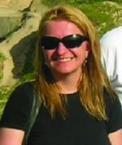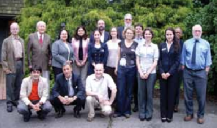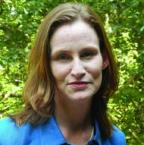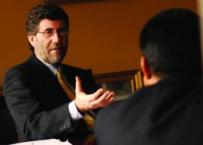 |
New Leadership for Undergrad and Master's ProgramsBoth the Undergraduate and Masters programs will begin the 2009-10 academic year under new leadership. ICAR Associate Professor, Dr. Agnieszka Paczynska will assume the position of Undergraduate Program Director, taking over for Dr. Susan Hirsch. Dr. Paczynska has been at ICAR since 2002. As we go to press she is monitoring presidential and provincial council elections in Jalalabad, Afghanistan with Democracy International. This transition takes place as the undergraduate program celebrates its 5th anniversary as part of the ICAR community. Dr. Paczynska is anticipating the upcoming conference... |
 |
New Graduate Certificate Launched Environmental Conflict Resolution and CollaborationIn partnership with the Department of Environmental Sciences and Policy (ESP), ICAR has established a 15-credit Graduate Certificate in Environmental Conflict Resolution and Collaboration beginning in August 2009. This program has been developed in collaboration with Dr. Frank Dukes of the Institute for Environmental Negotiation, University of Virginia, and in consultation with an informal advisory group of environmental leaders in the region. Why this new certificate program? Crashed fisheries, lost species, contaminated water, toxic communities, looming impacts of global warming – despite decades of laws, regulations, and environmental education, we are failing in many ways and in many locations to ensure a safe,... |
Upcoming ICAR Community EventsSaturday, August 29, 2009 Saturday, September 12, 2009 Tuesday, September 15, 2009 Tuesday, October 13, 2009 http://icar.gmu.edu/events.htm |
|
 |
Zones of Peace in the South Caucasus ICAR Hosts Symposium at Point of ViewThe long-term consequences of the five-day war over South Ossetia in August 2008 are difficult to evaluate. The contested status of South Ossetia, recriminatory blame and civilian devastation contribute to an unstable situation in the region with a deepening divide between the South Ossetian and Georgian societies. Given the fact that a number of frozen conflicts remain unresolved in the broader South Caucasus region, the situation in South Ossetia gives urgency to finding peaceful, comprehensible and sustainable ways to resolve conflicts in the South Caucasus. Working with grant funding from Mason's Center for Global Studies, Susan Allen Nan convened the “Zones of Peace in the South Caucasus” symposium in May 2009. The... |
Recent ICAR Articles, Op-Eds and Letters to the EditorLTE Re: Defending the Airways |
|
 |
ICAR Student OpinionWith the growing optimism in the revival of multilateralism in the Obama administration, there arises an opportunity for the Conflict Resolution community to reach out to public audiences and make its presence known. The time is ripe for conflict theorists and practitioners to step into the relatively uncharted territory of mediatic conflict resolution, lending their voices in an effort to stimulate change and introduce an alternate orientation that challenges zero sum solutions, humanizes the parties to conflict, and exposes distortions on all sides. Essentially, there is a basic need for practitioners to position themselves, with their nuanced knowledge and field experience, between the dueling "talking heads" that... |
 |
ICAR Welcomes Dwyer and Flores as Assistant Professors of Conflict ResolutionLeslie Dwyer, who comes to ICAR from Haverford College, has joined the Institute's faculty as an Assistant Professor of Conflict Resolution. Dr. Dwyer – an anthropologist with extensive expertise in social science research methodology; the social and political life of discourse, narrative, and ritual; and discourses of transitional justice – received her Ph.D. from Princeton University in 2001. Before joining the faculty at Haverford, Dr. Dwyer was awarded postdoctoral fellowships from the MacArthur Foundation, the H.F. Guggenheim Foundation, and UCLA’s Center for Southeast Asian Studies. Dr. Dwyer has conducted fieldwork and research in Indonesia, specifically, Bali, since 1993 – and it is essentially through... |
 |
Andrea Bartoli and the Evolution of ICARIt isn’t often that one senses a new phase of development beginning. Usually, these commencements go unremarked. Only later does it become clear that an event which seemed relatively continuous with the past was actually a door opening upon a new stage of one’s personal or professional life. Prediction is a hazardous business, of course. In ancient Rome, “inauguration” meant reading the entrails to foretell the fates of the leader and the state. Nonetheless, Andrea Bartoli’s inauguration as ICAR director seems to me an event both reflective and generative of a new period of transformation. Professor Bartoli came to ICAR two years ago as Christopher Mitchell’s successor in the Drucie French Cumbie... |
 |
A Congregation of Leaders: ICAR's Directors from 1983-PresentICAR’s first director was the remarkable Bryant Wedge, a charismatic Yale psychiatrist and social scholar who pioneered the use of psychoanalytic concepts to interpret the behavior of political leaders, and who helped create the original Center for Conflict Resolution at George Mason in 1981. With his colleague and successor, former Foreign Service Officer Henry C. Barringer, and with the support of future ICAR director James H. Laue, Wedge led the fight for a National Peace Academy, which eventuated in the creation of the US Institute for Peace. George Mason sociologist Joseph Scimecca... |



